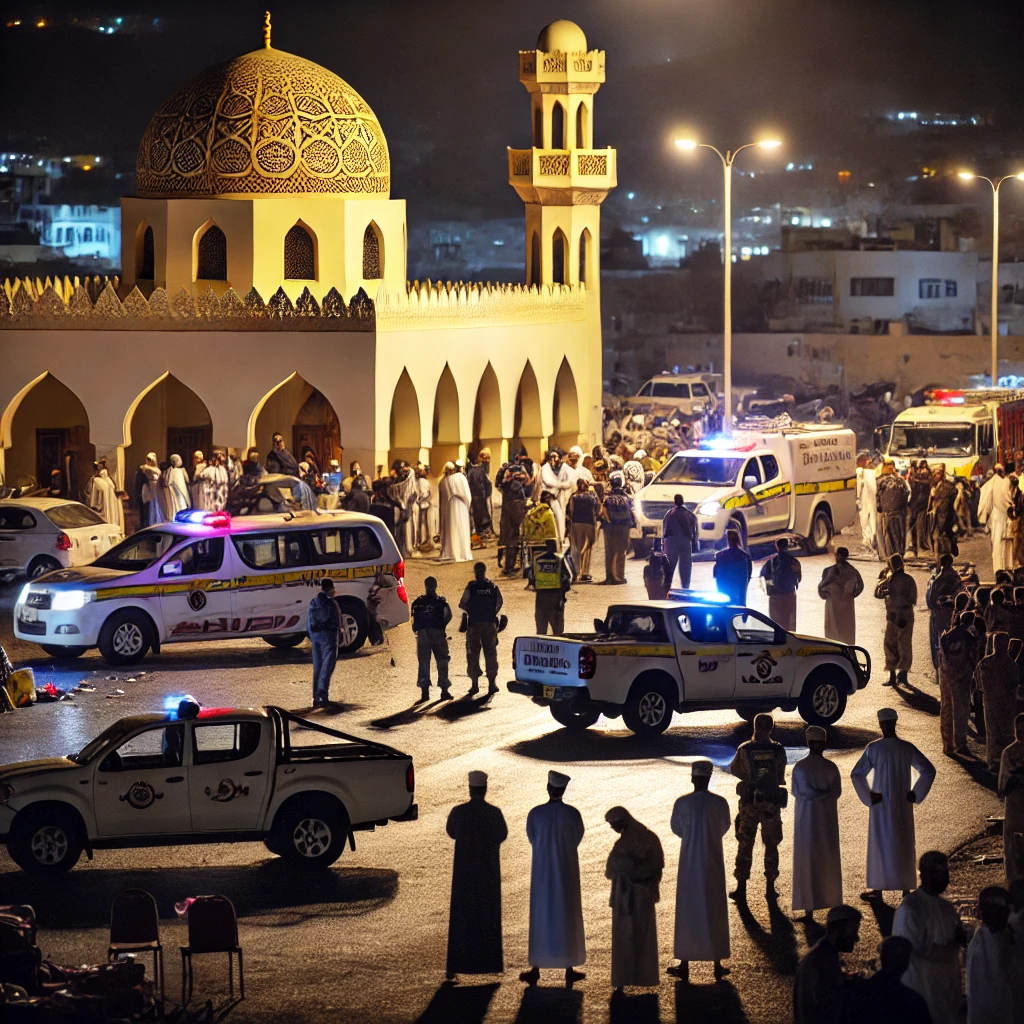The serene and peaceful image of Oman was shattered on Monday night by a rare and tragic shooting incident in Wadi Kabir, a district east of the capital city, Muscat. The attack left six people dead and at least 30 others wounded, marking a significant act of violence in the Gulf state. The Islamic State of Iraq and the Levant (ISIL, also known as ISIS) has claimed responsibility for the attack, which has drawn widespread condemnation and highlighted the fragility of peace even in the most stable regions
The Incident: wadi kabir
On the night of the attack, worshippers were gathered at the Imam Ali Mosque in Wadi Kabir to observe Ashura, a major religious event for Shia Muslims commemorating the martyrdom of Imam Hussein, the grandson of Prophet Muhammad. As prayers were underway, three attackers, later identified as ISIL operatives, opened fire on the congregation.
Eyewitness accounts and video footage from the scene show chaos and panic as gunfire erupted. People were seen fleeing the mosque, with the minaret visible in the background, and cries of “Oh God!” echoed through the night. The attackers exchanged gunfire with Omani security forces, resulting in a prolonged and intense shootout that lasted until the early hours of the morning.
Casualties and Immediate Response
The Royal Oman Police (ROP) confirmed that four Pakistani nationals and a police officer were among those killed in the attack. In total, six people lost their lives, and over 30 others sustained injuries. The injured were rushed to nearby hospitals, where they received emergency medical treatment.
Ali, a witness and survivor, recounted the bravery of the fallen police officer, saying, “He closed the doors of the mosque. If he had not done it, then many people would have been killed.”
ISIL’s Claim and Broader Context
ISIL claimed responsibility for the attack through their Telegram channel, describing the attackers as “suicide fighters” who targeted the Shia worshippers. The group also released a video purportedly showing the attack. This incident is part of a broader pattern of ISIL attacks targeting Shia Muslims and other groups they consider heretical.
This attack in Oman follows other high-profile ISIL attacks in recent months, including a devastating assault in Moscow that killed over 140 people and bombings in Kerman, Iran, that claimed nearly 100 lives. These attacks underscore the persistent threat posed by ISIL, even as their territorial control in the Middle East has been significantly diminished.
Condemnation and Solidarity
The attack has drawn condemnation from various quarters. The Arab Parliament and the Gulf Cooperation Council (GCC) have both issued strong statements denouncing the violence and expressing solidarity with Oman. The GCC Secretary General, Jasem Albudaiwi, emphasized that such acts contradict the principles of Islam and moral values and affirmed the GCC’s support for Omani security measures.
Pakistan’s Ministry of Foreign Affairs also condemned the attack, describing it as a “dastardly terrorist act” and expressing condolences to the families of the victims. The ministry confirmed that Pakistani survivors were receiving treatment in hospitals and assured that the Pakistani government would provide all necessary support to the affected families.
Community Impact and International Response
The shooting has deeply affected the local community in Wadi Kabir and the broader Omani society. Such violence is rare in Oman, a country known for its role as a regional mediator and its low crime rate. The US Embassy in Muscat issued a security alert advising American citizens to remain vigilant and follow local news and authorities’ directions.
Ali, reflecting on the incident, described it as “an unprecedented event … the likes of it we have not seen in Oman’s history.” He noted that most of the victims suffered gunshot wounds, while others were injured in the ensuing stampede as people tried to flee the mosque.
𝐔𝐩𝐝𝐚𝐭𝐞 𝐨𝐧 𝐭𝐡𝐞 𝐜𝐚𝐬𝐮𝐚𝐥𝐭𝐢𝐞𝐬 𝐢𝐧 𝐭𝐡𝐞 𝐚𝐭𝐭𝐚𝐜𝐤 𝐨𝐧 𝐈𝐦𝐚𝐦 𝐁𝐚𝐫𝐠𝐚𝐡 𝐢𝐧 𝐌𝐮𝐬𝐜𝐚𝐭, 𝐎𝐦𝐚𝐧
— Ministry of Foreign Affairs - Pakistan (@ForeignOfficePk) July 16, 2024
According to the latest information received from the Omani authorities, four Pakistanis were martyred as a result of gunshots in the dastardly terrorist…
Conclusion
The Wadi Kabir shooting is a stark reminder of the global reach of terrorism and the need for continued vigilance and international cooperation to combat such threats. The incident has united Oman and its allies in mourning and resolve, as the nation grapples with the aftermath of this tragic event and works to ensure the safety and security of its people.

